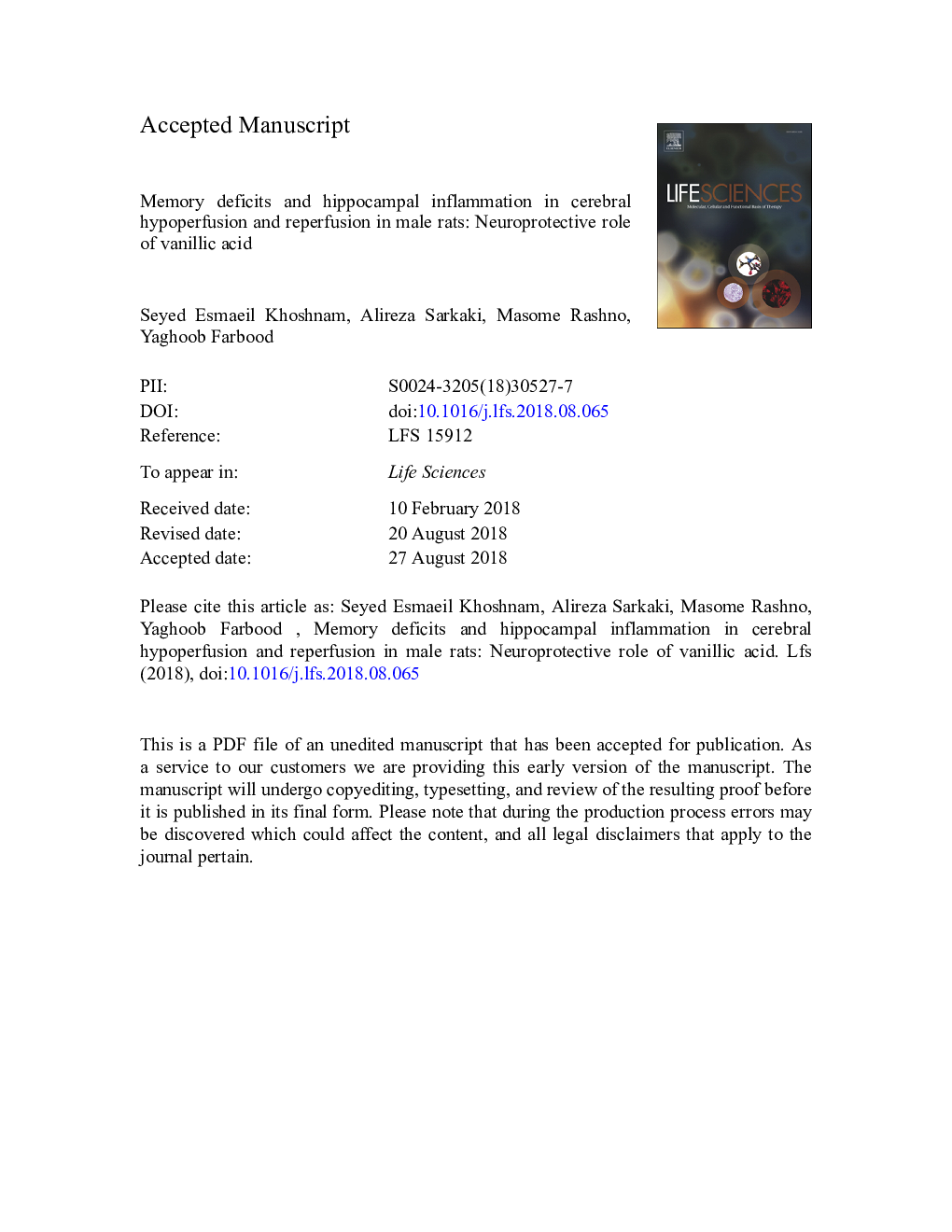| Article ID | Journal | Published Year | Pages | File Type |
|---|---|---|---|---|
| 10149354 | Life Sciences | 2018 | 24 Pages |
Abstract
Ischemic stroke is one of the leading causes of neurological deterioration and mortality worldwide. Neuroprotective strategies are being investigated to minimize cognitive deficits after ischemic events. Here we investigated the neuroprotective potential of vanillic acid (VA) in an animal model of transient bilateral common carotid artery occlusion and reperfusion (BCCAO/R). Adult male Wistar rats (250-300â¯g) were randomly divided in 4 groups and submitted to either cerebral hypoperfusion-reperfusion or a sham surgery after two-weeks of pretreatment with VA and/or normal saline. To induce the animal model of hypoperfusion, bilateral common carotid arteries were occluded (2VO model) for 30â¯min, followed by 72â¯h of reperfusion. Subsequently, their cognitive performance was evaluated in a Morris water maze (MWM) test, and also hippocampi were removed for ELISA assays and TUNEL staining test. The results showed that 2VO significantly reduced the spatial memory performance in MWM. As well as, BCCAO/R increased the level of IL-6, TNF-α and TUNEL positive cells, and also decreased the contents of IL-10 in the hippocampus of vehicle- pretreated groups as compared to the sham-operated groups. Furthermore, 14 consecutive days pretreatment with VA significantly restored the spatial memory, decreased the levels of IL-6, TNF-α and TUNEL positive cells and also increased the IL-10 levels in the hippocampi of the BCCAO/R rats. VA alone did not show any change neither in the status of various cytokines nor behavioral and TUNEL staining tests over sham values. Our data confirm that VA could potentially serve as a novel, promising, and accessible neuroprotective agent against cerebrovascular insufficiency states and vascular dementia.
Related Topics
Health Sciences
Medicine and Dentistry
Cardiology and Cardiovascular Medicine
Authors
Seyed Esmaeil Khoshnam, Alireza Sarkaki, Masome Rashno, Yaghoob Farbood,
